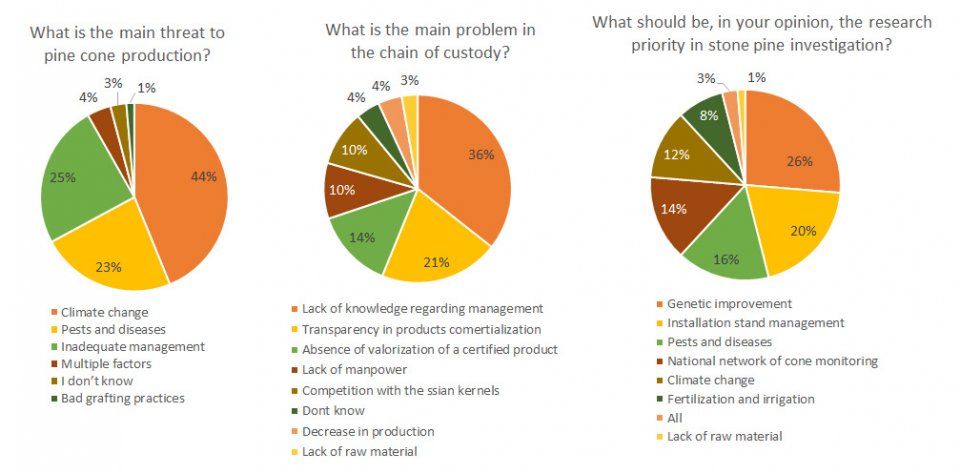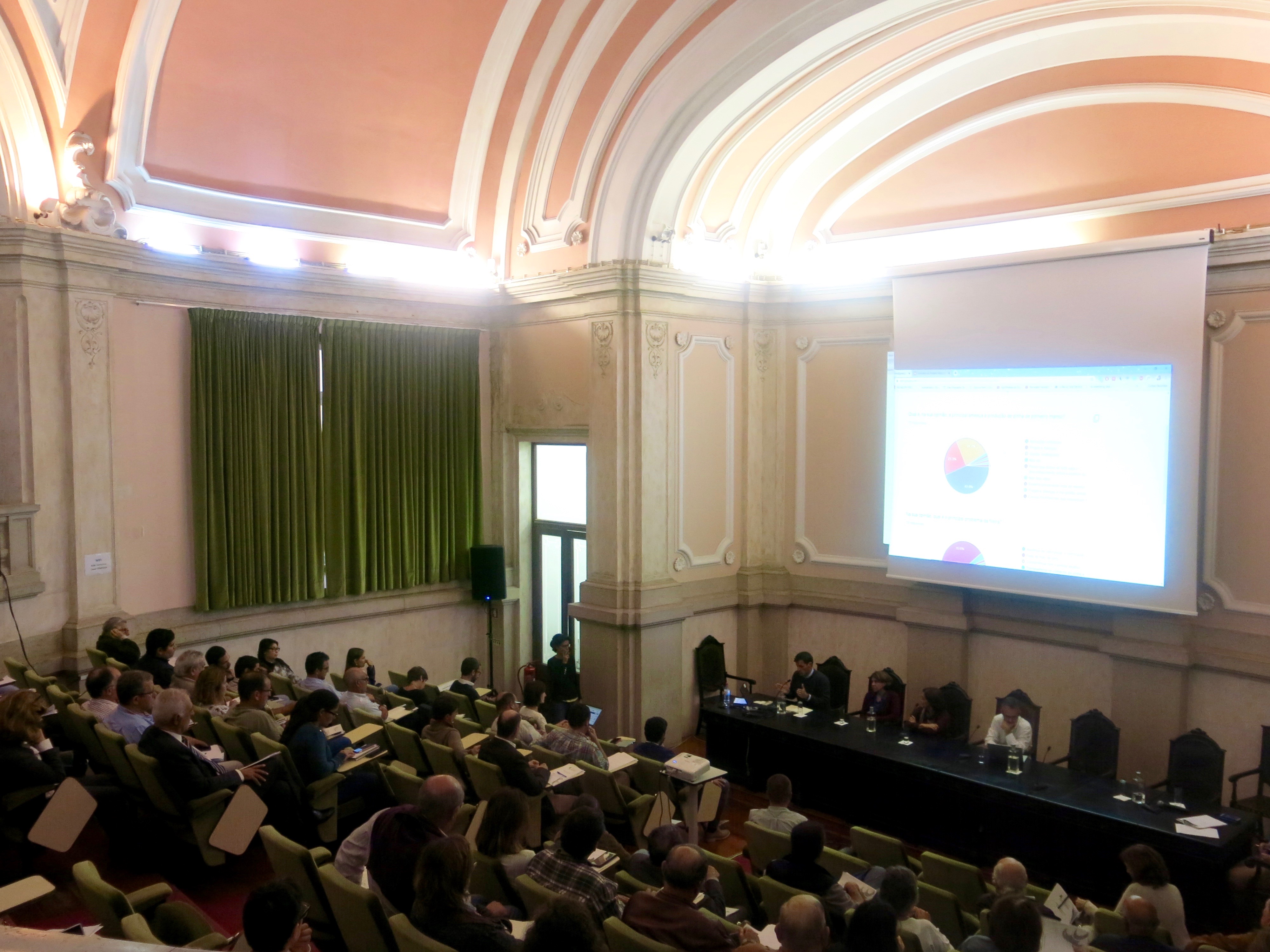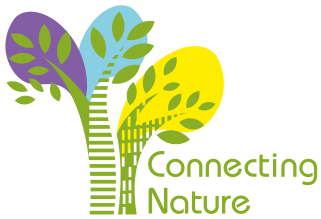
The forest area of stone pine, Pinus pinea, has increased significantly in Portugal in the last 30 years, following the same trend of other Mediterranean countries. At the same time, forest stakeholders report losses in cone production and yield and question on the best management practices to face a already changing climate.
During a Science to Practice event entitled "Stone pine and pine nuts: more knowledge for a better management" held in Lisbon in October 2019, we conducted a survey were we were able to assess the stakeholders' concerns with the pine nut value chain and identify research priorities.
During the seminar, the participants were invited to answer a survey consisting on 3 questions: What is the main threat to pine cone production? What is the main problem in the value chain? What should be, in your opinion, the research priority in the stone pine investigation?
A total 73 out of 92 participants in the meeting answered (79% valid surveys). The participants grouped as follows: 38% landowners, 26% from forest sector business or forestry associations, 12% researchers, 11% consumers/end users, 8% from cone and kernel processing industry, and 4% from state agencies.
Participants found Climate Change as one of the most important threat to cone production in Portugal (44% of the answers), followed by inadequate forest management (25%) and the incidence of pests and diseases (23%). When asked about the main problems of the supply chain, the lack of knowledge about good management was the most referred to (36% of the answers), followed by the lack of transparency in pine cone trade (21%), as well as the lack of product certification (14%). The problem of manpower shortage and competition with Asian pine nut kernels was also mentioned by 10% of the participants each. Finally, research priorities were put in studies regarding genetic improvement (26%), silviculture (20%), pests and diseases (16%) and the need for an network at national level for monitoring annual pine cone production.
With this survey we were able to understand that Climate Change is a present-day concern to forest managers. The anticipation and extension of the typical hot and dry Mediterranean summer season due to a persistent reduction of rainfall in spring are the main concerns.
Facing this uncertainty scenario, the manager's challenges are now related to new silviculture approaches and ways to counteract the loss of productivity and looking at genetic improvement as a possibility for future research. Pests and diseases are also a source of concern, especially the invasive North American seed bug, Leptoglossus occidentalis, though also cases of cone feeding larvae of Dioryctria sp. are reported throughout the country. The lack of transparency in the cone and kernel marketing circuit, and competition with foreign markets were also mention though to a smaller extent.
The immediate impact of this survey was to assess and summarize the concerns of the agents involved in the pine nut value chain in Portugal. This constant communication with the scientific community is important, for example, to help define research priority lines. However, it is imperative to keep in mind that research, especially the one focused on the practical and applied knowledge, requires medium-long term research projects. The prescription of new silvicultural routines and practices requires long term experimentation and knowledge accumulated during generations.
Fostering communication between the scientific community and forest stakeholders is a win-win strategy. It should be a two-way effort: research should make an effort to communicate bidirectionally in a clear and understandable way, and stakeholders must have a participatory attitude by involving themselves in the dialogue, comprehending and communicationg to the scientific community their perceptions and concerns as forest managers.
Alexandra Correia, alexandrac@isa.ulisboa.pt, https://alexandracorreia.wixsite.com/curriculum
Further information
Credits by: Alexandra Correia

Picture of the audience at the Science to practice event in Lisbon, October 2019, "Stone pine and pine nuts: more knowledge for a better management".
